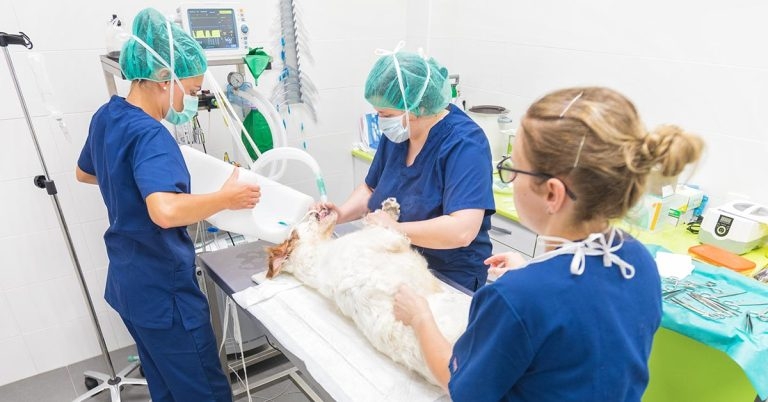19 Jun 2020
Association calls for contact tracing rules to be amended for veterinary professionals to protect both animal welfare and practices that have taken a financial battering during COVID-19 lockdown.

The BVA is concerned that the need to work in close proximity could result in practices being forced to close if a team member tests positive for COVID-19. Image © herraez / Adobe Stock
Fears are growing that sudden practice closures could leave large swathes of the country without veterinary cover unless changes are made to the coronavirus contact tracing system.
Under current contact tracing rules, veterinary practice staff will be treated in the same way as the public – meaning anyone who has been within two metres of someone for more than 15 minutes who has tested positive for COVID-19 will have to self-isolate for two weeks.
For veterinary practices where clinicians regularly work in close proximity to one another, this could potentially mean entire teams being forced to self-isolate, which could have “huge ramifications” for the veterinary sector and the animals it serves.
BVA president Daniella Dos Santos said: “As things stand, unless you are a health or social care worker, you will just be asked if you have been in contact with person x, y or z, and if the answer is ‘yes’, that person will have to isolate.
“We cannot work at two metres apart and we cannot socially distance within our teams, so there is a risk that if someone was to come down with COVID, the whole practice will have to isolate and that practice would have to close very suddenly with little warning, for a minimum of two weeks.
“This would have huge ramifications for practices, and for animal health and welfare, and risks shutting down some practices for good.
“We are trying to stop practices having to shut suddenly, which may leave parts of the country with no veterinary cover whatsoever.”
To avoid some of these consequences, the BVA has written to the health secretary and is lobbying ministers in a bid to get veterinary professionals classified as tier one workers.
Such classification would mean any veterinary worker who tested positive for COVID-19 would be referred to a specialist public health official who would be better able to gauge the risks of infection spread.
Simon Power – commercial manager at Vets One, an independent small animal practice in Norfolk – said the contact tracing scheme “has the potential for closing us down overnight with all the associated patient care issues”.
He added: “We have a team of 40 heads allowing us to split into two independent work groups working a three-day rolling rota. This provides some form of safety net, but if one team was taken out of the business, could I really ask the other team to work a flat out seven days?”